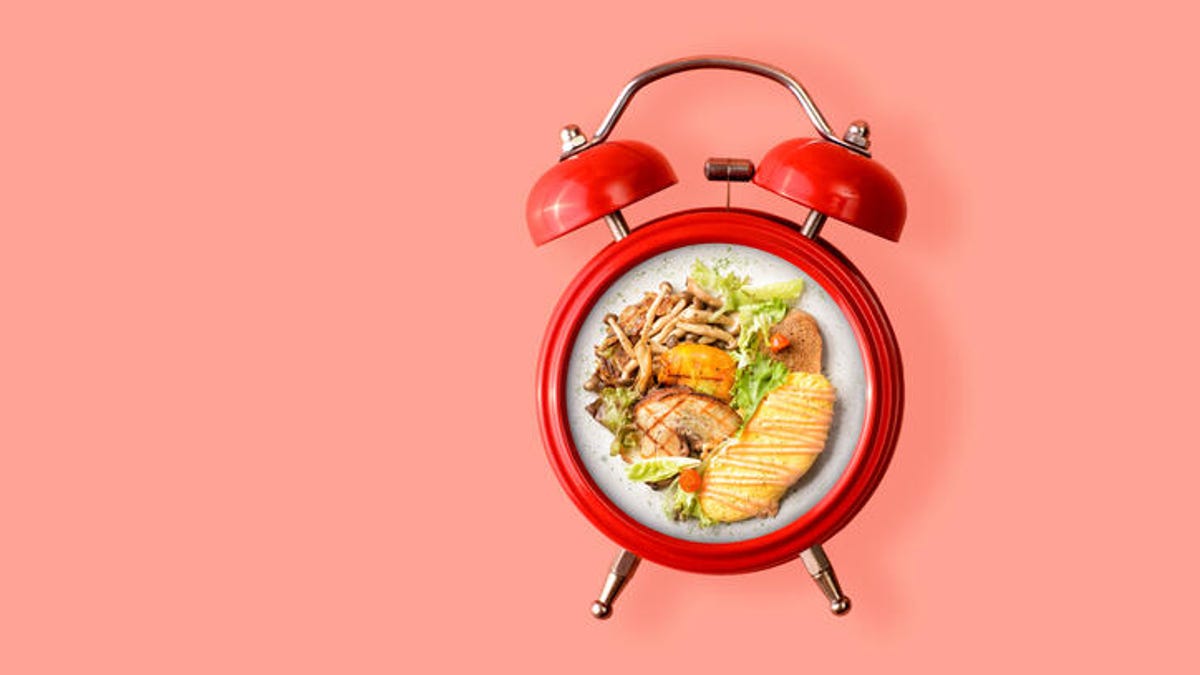The importance of a good night’s sleep cannot be understated. Not only does it keep illness at bay but it also curbs the negative impact of poor sleep on mental health. But did you know that the sleep quality you get doesn’t just come down to how comfortable your mattress is? An often overlooked factor that keeps many of us up at night is the food we eat.
In the spirit of National Sleep Awareness Month, let’s explore the relationship between sleep and diet. Most people know that unhealthy eating habits can greatly affect your sleep patterns. Eating certain foods that are too spicy can cause acid reflux or eating something too sugary may make it hard to fall asleep to begin with. However, you may not know how sleep quality impacts your nutrition. That’s right, folks, it works both ways.
Read more: Can Tech Help You Sleep Better? This Is My 3-Week Quest for Answers
Your diet impacts sleep quality
Most people accept that nutrition is essential to keep your body working at peak performance — you need calcium to keep your bones strong and potassium to keep your nerves and muscles functioning. But did you know that your vitamin and nutrient intake also dictates how well you sleep?
Studies have indicated that certain nutrient deficiencies like magnesium, calcium and vitamins A, C, D, E and K — can lead to sleep troubles. For example, a vitamin D deficiency may contribute to sleep disorders and shorter sleep duration, possibly because it’s important for melatonin production pathways.
A balanced diet rich in essential nutrients will set your body up to get better sleep. And to help your sleep patterns, there are a few rules you should follow when you’re eating to improve sleep quality. First, you should ensure you don’t eat big meals too close to bedtime to avoid acid reflux and heartburn. You also should be careful of the kinds of foods and drinks you’re consuming, as some can keep you up at night.
Foods to stay away from at night to get better sleep:
- High-fat and sugary foods.
- Spicy foods.
- Caffeine.
- Alcohol.
- Acidic foods.
- Chocolate.

Thankfully, late-night snacks aren’t completely off the table. There are foods that include tryptophan, magnesium, vitamin D and complex carbs that can promote sleep. Swapping out your usual go-to for one of these options might help you drift off more easily, curbing poor sleep.
- Proteins like fish and poultry.
- Whole grains.
- Leafy greens.
- Cruciferous vegetables.
- Milk and yogurt.
- Nuts.
- Fruits like berries, bananas, kiwis and oranges.
A good night’s sleep can dictate your food choices
I don’t know about you, but if I’m tired, the only thing my stomach grumbles for are all the worst things: french fries, cookies and chips. It’s as if the only thing that can get me through hours of brain fog and poor concentration is a shot of sugar right to the brain. But we know lots of sugar isn’t ideal for mental health.
When you’re sleep-deprived, you’re more likely to make bad food choices and increase consumption without balancing it with energy expenditure. This could be one reason that sleep deprivation is linked to a higher risk of obesity and chronic health conditions like Type 2 diabetes.
Before you feel bad about yourself, you should know there are hormones at work. Ghrelin and leptin are the hormones in charge of regulating appetite. Leptin’s role is to maintain energy balance and inhibit hunger. It naturally rises when we’re sleeping. Conversely, ghrelin release tells your brain it’s time to eat. That’s why it’s also known as the “hunger hormone.”
Studies have shown that when your sleep is compromised, your leptin levels are down and your ghrelin levels are higher. So you feel hungrier even when you don’t need to eat. Research published in the journal Sleep found that sleep loss sends chemical signals that boost the pleasure and satisfaction one gets from eating. This is why you’ll find yourself reaching for snacks instead of healthy alternatives, leading to unforeseen weight gain.
Compromised sleep doesn’t just leave you tired and foggy the next day; it can also lead to poor food decisions that only add to your discomfort.
Ways to improve your sleep and diet
Your nutrition and sleep habits rely on one another to be their best, meaning you can’t ignore one without it affecting the other. If you don’t know where to start, speaking with your doctor is a good jumping-off point. They can help you identify any nutritional deficiencies or sleep disorders like sleep apnea and help you tailor a nutritional plan to your needs and get healthy sleep.
There are a few daily habit changes that you can make to promote sleep at night.
- Focus on your sleep hygiene: When I say sleep hygiene, I mean your environment and habits before sleep. Having good sleep hygiene will help you get better sleep at night. A few hours before bed, it’s a good idea to start winding down your routine and integrate relaxing activities like reading a book or taking a bubble bath. Then, it’s best to put away your phone at least 45 minutes before bed so the blue light doesn’t keep you up. Making slight changes to your nightly routine can go a long way in improving sleep quality and helping you fall asleep.
- Keep it light at night: Going to bed hungry can disrupt sleep. So if you need a snack before bed, try to keep it light and pick food off the sleep-promoting list like a banana, yogurt or nuts.
- Don’t drink caffeine late into the afternoon: Caffeine can linger in your body hours after you consume it. Because of this, it’s best to stop drinking caffeine in the early afternoon so it doesn’t interfere with sleep.
- Be intentional about what you eat during the day: A balanced diet full of nutrients will go a long way in ensuring you sleep well at night. This isn’t to say you have to cut out all the fun stuff, though moderation is a good way to make sure you’re getting everything your body needs.

Too long; didn’t read?
Sleep and diet have a chick-or-egg relationship. At any point, you can be the chicken (not getting restful sleep because of what you eat) and then the egg (making bad food choices because of poor sleep quality). And there’s no definitive way to determine which came first, your poor sleep or your poor food choices.
The only way to fully address your sleep troubles and improve sleep health is to also examine your diet. Does your diet have too much saturated fat? Or are you eating the wrong foods at night? Making changes to your eating habits — while making sure a well-balanced diet is maintained — will significantly impact your sleep, which in turn will help you make better food choices.
#Link #Diet #Sleep #Habits #Start #Eating #Foods #Sleep
